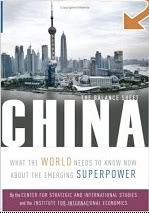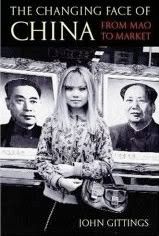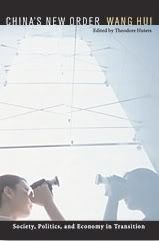U.S. may file a complaint with WTO on China 'piracy'
 By Mark Drajem and Li Yanping Bloomberg News
By Mark Drajem and Li Yanping Bloomberg NewsPublished: April 6, 2007
WASHINGTON: The United States may file a complaint at the World Trade Organization as early as next week over what it calls China's piracy of copyrighted movies and books, according to four people briefed by the Bush administration.
Officials have prepared two cases, one saying China sets too high a value on pirated movie or music disks before prosecuting violators, and another objecting to restrictions on the sale of foreign books and movies in the country, they said. The people, three industry officials and one lawyer, spoke on condition they not be identified.
China's illegal copying of movies, music and software cost companies $2.2 billion in 2006 sales, according to an estimate by lobby groups representing Microsoft, Walt Disney, and Vivendi. The WTO complaints would be the first by the U.S. against China for breaching intellectual property rights, in a country where copying has extended to bags, golf clubs and even shampoo.
"The U.S. believes that now it's time to put more pressure" on China, five years after the country became a WTO member, a Standard Chartered economist, Stephen Green in Shanghai, said Friday. "The U.S. believes that China has clearly infringed rules that it agreed to play by," prompting the action.
China's 2006 trade surplus against the U.S. widened to a record $232.5 billion, prompting U.S. lawmakers to blame the yuan's value and China's piracy of patented goods for the gap.
In a letter to President George W. Bush in October, Nancy Pelosi, speaker of the U.S. House of Representatives, and other lawmakers said that "no country in the world has done more to undermine American intellectual property than China."
Sean Spicer, a spokesman for the U.S. trade representative's office in Washington, declined to comment.
U.S. complaints were imminent, the U.S. trade representative, Susan Schwab, said Feb. 22. "We're all going to run out of patience at some point, and that's going to be sooner rather than later," she said.
Last month, the Bush administration decided to levy duties on imports of coated paper from China to compensate for Chinese subsidies to exporters.
Under WTO procedures, the United States will formally ask for consultations with China when it files its complaints. Only after 60 days can it ask for an independent panel to adjudicate the dispute.
"China has continued to demonstrate little success in actually enforcing its laws and regulations in the face of the challenges created by widespread counterfeiting, piracy and other forms of infringement," the U.S. trade agency said in a report this past week. "One major factor is China's chronic underutilization of deterrent criminal remedies."
The U.S. plan may not escalate into a formal complaint, said Li Yushi, deputy director of the Chinese Commerce Ministry's research institute.
"This is just another turn of focus by the U.S. government in dealing with its widening trade deficit with China," Li said Friday in Beijing. "The administration understands that China has made efforts in IPR protection, as well as our limitations in enforcing the effort," he said, referring to intellectual property rights.
Pirated DVDs, including the Oscar-winning movie "The Departed," still sell for less than $1 on the streets of Chinese cities including Beijing and Shanghai.
"It's all about the economics of movies," said Liu Ping, who sells pirated DVDs including "The Departed" and "300" for as little as 5 yuan, or 65 cents, at the Wangfujing subway station in Beijing. "No one wants to pay 60 yuan for a movie when they can watch a DVD for 5 yuan."
A reason for piracy could be the limits placed on U.S. publishers and movie companies. Overseas publishers are only allowed to sell non-Chinese books, magazines and newspapers through five-star hotels while movie studios can only show a limited number of overseas films every year in China.
"IPR is critical to the U.S. because it is a tool by which it can control technology and industries around the world," said Guan Anping, managing partner of Beijing-based corporate law firm Anping & Partners. "It's a powerful tool to control nations like China, which are dependent on low-cost manufacturing."
The Bush administration may still adjust or delay the complaints to account for new announcements from China. Twice in the past year, the U.S. was poised to file a complaint only to delay at the last moment.***
Li Yanping reported from Beijing.
Read more!




